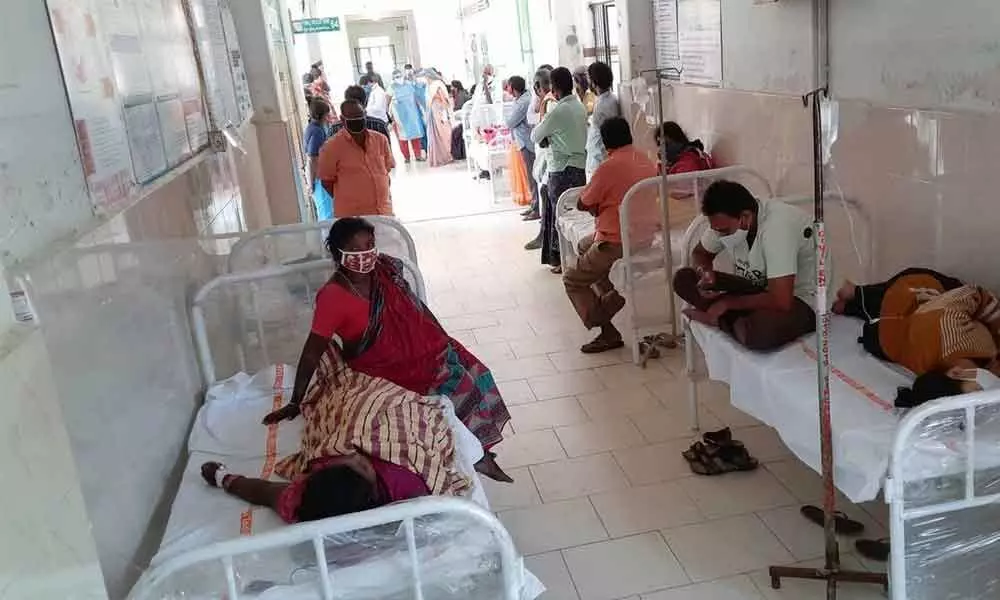Eluru tragedy: It's time to curb use of pesticides

Eluru tragedy: It’s time to curb use of pesticides
Eluru tragedy was only waiting to happen
Eluru tragedy was only waiting to happen. That hundreds of people were admitted to hospitals and the stream of visitors seems to never stop with even repeat cases coming up should not only be a concern for the authorities but also to the people. Because, the medical opinion is veering around the consumption of organochlorines used as pesticides through food and water.Or else there could be another reason - usage of mosquito control sprays.
One welcome feature was that so far only one death has been reported while more than 500 have been hospitalised. The unknown illness has infected more than 300 children, with most of them suffering from dizziness, fainting spells, headache and vomiting. They have tested negative for Covid-19. GVL Narasimha Rao, who is a member of Parliament from the State, said on Twitter that he had spoken with government medical experts and that the "most likely cause is poisonous organochlorine substances". It is one of the possibilities," said a medical official in the State, adding they were awaiting test reports to ascertain the cause. Exposure to organochlorine pesticides over a short period may produce convulsions, headache, dizziness, nausea, vomiting, tremors, confusion, muscle weakness, slurred speech, salivation and sweating. Organochlorines are a group of chlorinated compounds.
These are widely used in pesticides. Similarly, Organochlorine insecticides were earlier successfully used in control of malaria and typhus despite the fact that these are all banned or restricted in most of the advanced countries after research linked them to cancer and other potential health risks. Punjab should be an eye opener in this regard with its 'cancer special train' itself to prove the impact of these pesticides on health. These chemicals remain in the environment for years and build up in animal and human body fat.
The review statistics on the use of different pesticides shows that 40% of all pesticides used belong to the organochlorine class of chemicals. Due to their low cost and the need against various pests, organochlorine insecticides such as DDT, hexachlorocyclohexane (HCH), aldrin and dieldrin are among the most widely used pesticides in developing countries of Asia.
It is not immediately clear how extensively the chemicals are used in India, though it is found in DDT which continues to be used for fumigation against mosquitoes in several places in India. A partial ban on DDT was introduced in 2008 wherein it could not be used for agricultural purposes. As pesticides have a high effect on the animal and bird community, ultimately humans also take up pesticides as meat, milk and crops derived from these animals and plants. The AP government has laid out a huge budget on healthcare unlike most other States.
It is mostly about the curative aspect. It's time, the preventive aspects and attempts to curb the practice of pesticide usage are taken care of too in the agri-intense State. It is high time other governments make note of this and wake up to the pesticide reality. Due to the high persistence and bioaccumulation potential, the Stockholm Convention has classified most of the organochlorine compounds as environmental hazards and banned the use of many. However, we keep using them.




